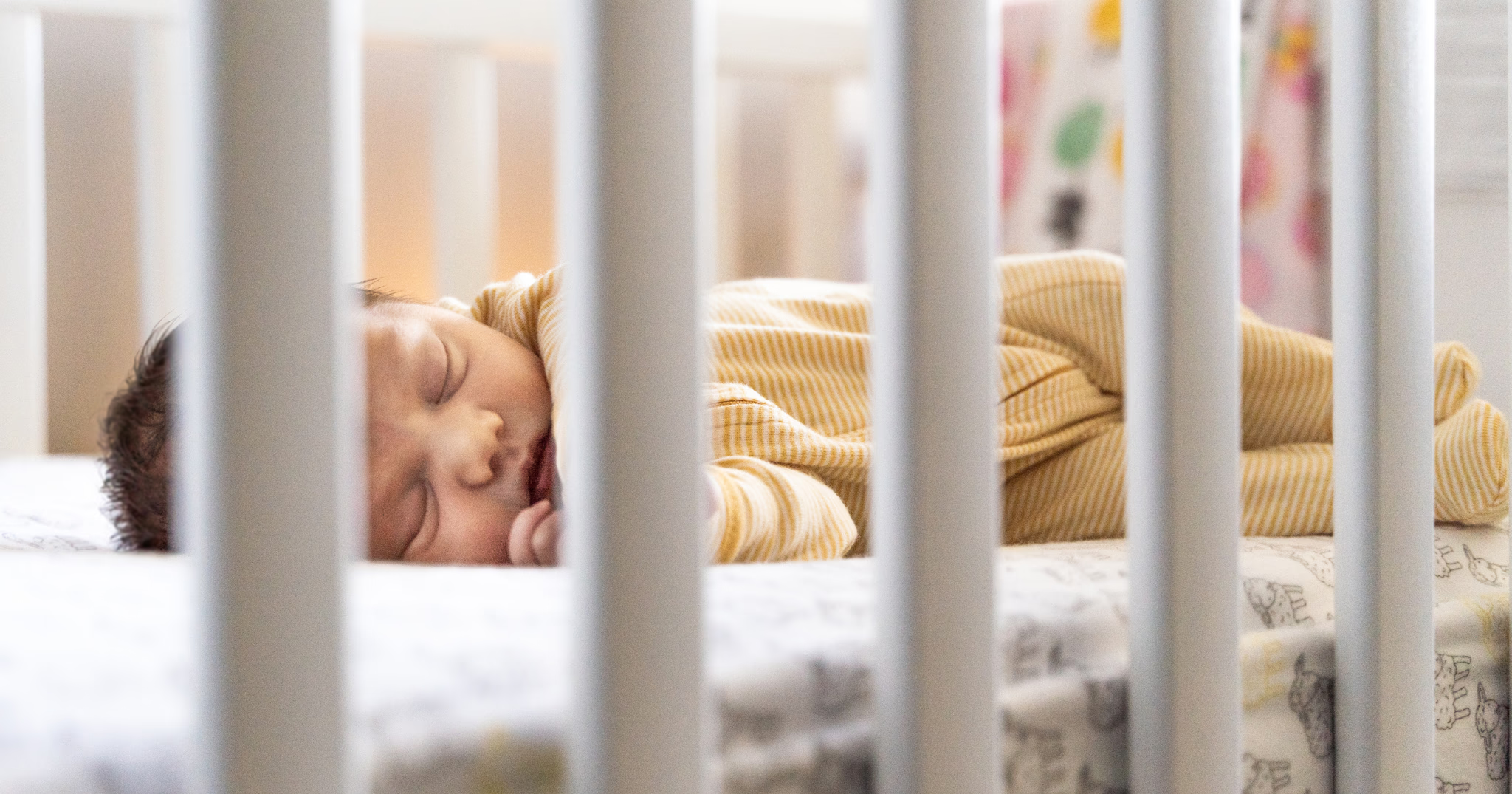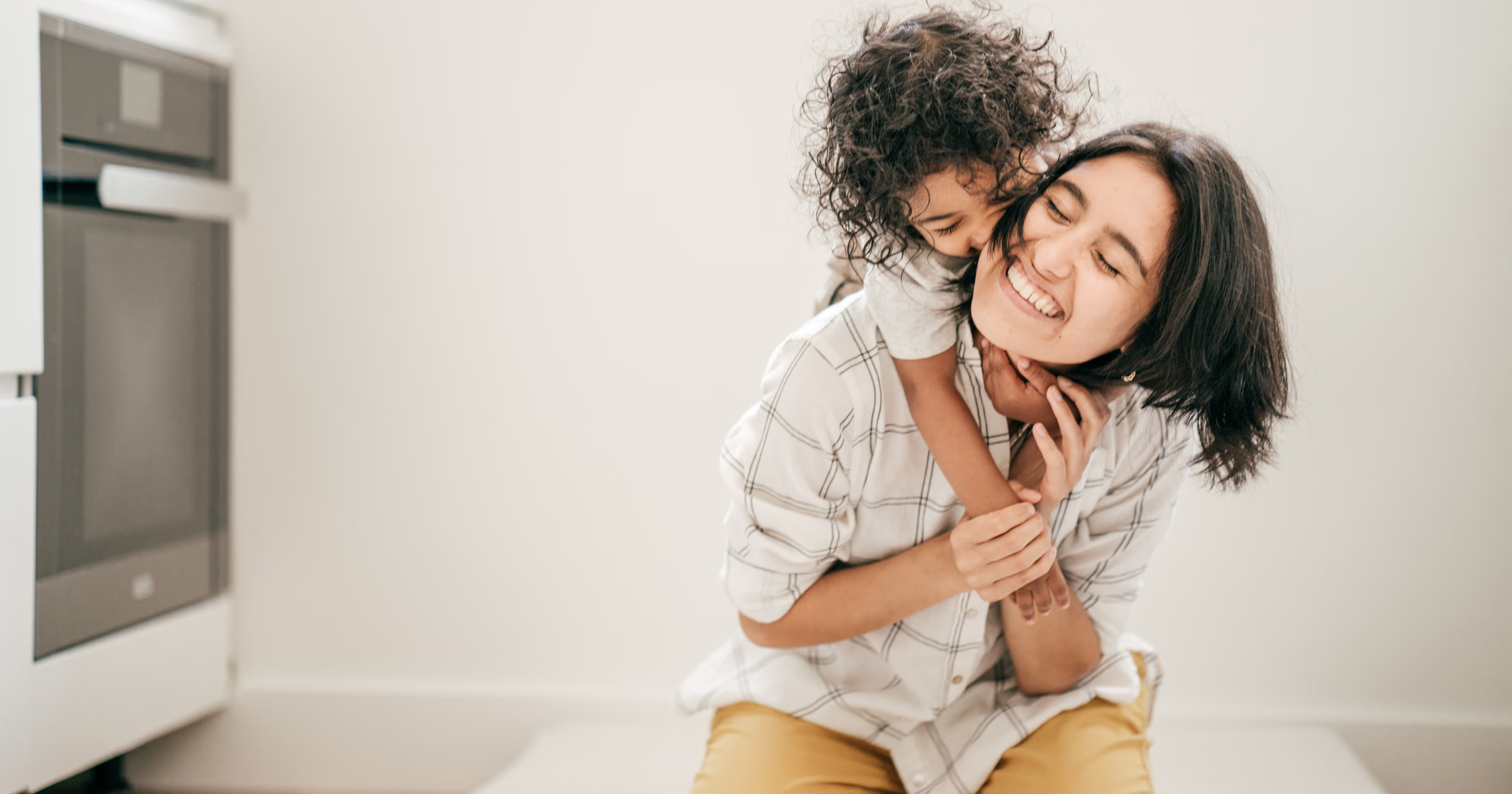Sleep training—just the phrase itself can spark a whirlwind of emotions and opinions. Some parents hear “sleep training” and automatically think of “cry-it-out” or neglect.
But here’s the thing: sleep training isn’t a dirty word, and helping your child establish healthy sleep habits doesn’t make you a lazy or emotionally detached parent. In fact, it’s one of the most loving things you can do.
It’s time we clear up the misconceptions and embrace the reality that teaching your child how to sleep is not the same as leaving them to cry endlessly in a dark room. What we’re really talking about is guiding your child to develop independent sleep skills—and that’s a completely natural, biological part of their development.

For too long, we’ve been led to believe that relentless exhaustion is just part of the parenting package. Sleepless nights that drag on for months (or years!) have somehow become an accepted norm.
But here’s the truth: exhaustion is not a badge of honor, and constantly running on empty does not make you a more devoted or loving parent. In fact, it can take a serious toll on your mental and physical health.
It’s okay to want to change that narrative. It’s okay to want more sleep—for you and your child. And more importantly, it’s okay to teach your child how to sleep without feeling guilty about it.

Let me shout this from the rooftops: teaching your child how to sleep is not the same as sleep training. Yes, there’s a difference! When I say sleep teaching, I’m talking about helping your child learn to sleep in a way that honors their natural abilities and developmental needs—without abandoning their emotional needs.
Many parents think they’re helping their child by rocking, feeding, or holding them to sleep every night. While these are loving gestures, they can sometimes prevent your baby from developing the skills to fall asleep on their own. Just as you teach your child to eat, walk, and talk, you can teach them how to sleep.

Believe it or not, babies are naturally capable of sleep. They can fall asleep independently from a very young age. But it takes guidance, trust, and, yes, consistency.
The problem arises when well-meaning parents over-intervene, unintentionally disrupting their child’s ability to self-settle. Of course, this doesn’t mean leaving your child to cry it out for hours. Far from it.
It means showing them how to wind down and settle, supporting them, and then stepping back—giving them the space to learn and develop their own sleep patterns.
Our job as parents is not to do everything for them but to create a safe, supportive environment that allows them to grow. Sleep is no different. It’s about creating a healthy balance of support and independence. And here’s the kicker: they’re capable of learning how to sleep!

In today’s parenting culture, there’s so much pressure to get everything right. Everyone has an opinion, and with the flood of advice from books, blogs, and social media, it’s easy to feel judged or even ashamed for wanting to help your baby sleep better. But there’s no shame in doing what’s best for your family.
It’s time we stop berating parents who want to teach their children to sleep. Sleep is a skill, just like any other. Just as we teach our children to eat well and manage their emotions, sleep deserves the same attention. Helping your child sleep well doesn’t make you a bad parent—it makes you a smart, compassionate, and proactive one.

Sleep isn’t learned overnight. It takes practice and patience, both from you and your child. It’s not about rigid schedules or forcing a child to sleep when they’re not ready.
It’s about tuning into your child’s unique sleep patterns and giving them the chance to practice those skills. With love and consistency, they’ll get there—and so will you.
Imagine what that could mean for your family: more rest, more patience, more joy, and fewer nights of sheer exhaustion. You deserve that, and so does your child.

At the end of the day, sleep training or sleep teaching—whatever you choose to call it—shouldn’t be something parents feel guilty about. It’s a gift. You’re helping your child develop lifelong skills that will benefit their growth, health, and happiness.
So give yourself permission to do what feels right for your family. You are allowed to prioritize sleep. You are allowed to be rested and happy.
And remember: sleep teaching is not sleep training (in the way it’s often misunderstood). It’s a loving process that involves trust, patience, and a whole lot of heart. Your child is capable of learning, and together, you can create healthy sleep habits that will benefit your family for years to come.
If you’re ready for personalized support and real solutions, I’d love to meet you. Every family is different, and your path forward deserves a plan that fits your life — not just a one-size-fits-all answer. If that sounds like what you’ve been looking for, I invite you to book a consultation with me today. Let’s start building the calm, confident future you and your little one deserve.

You deserve a smoother, calmer routine—and now’s the perfect time to grab the tools that help.
From settling support to sleep saviours, we’re giving you up to 50% off some of our most-loved essentials